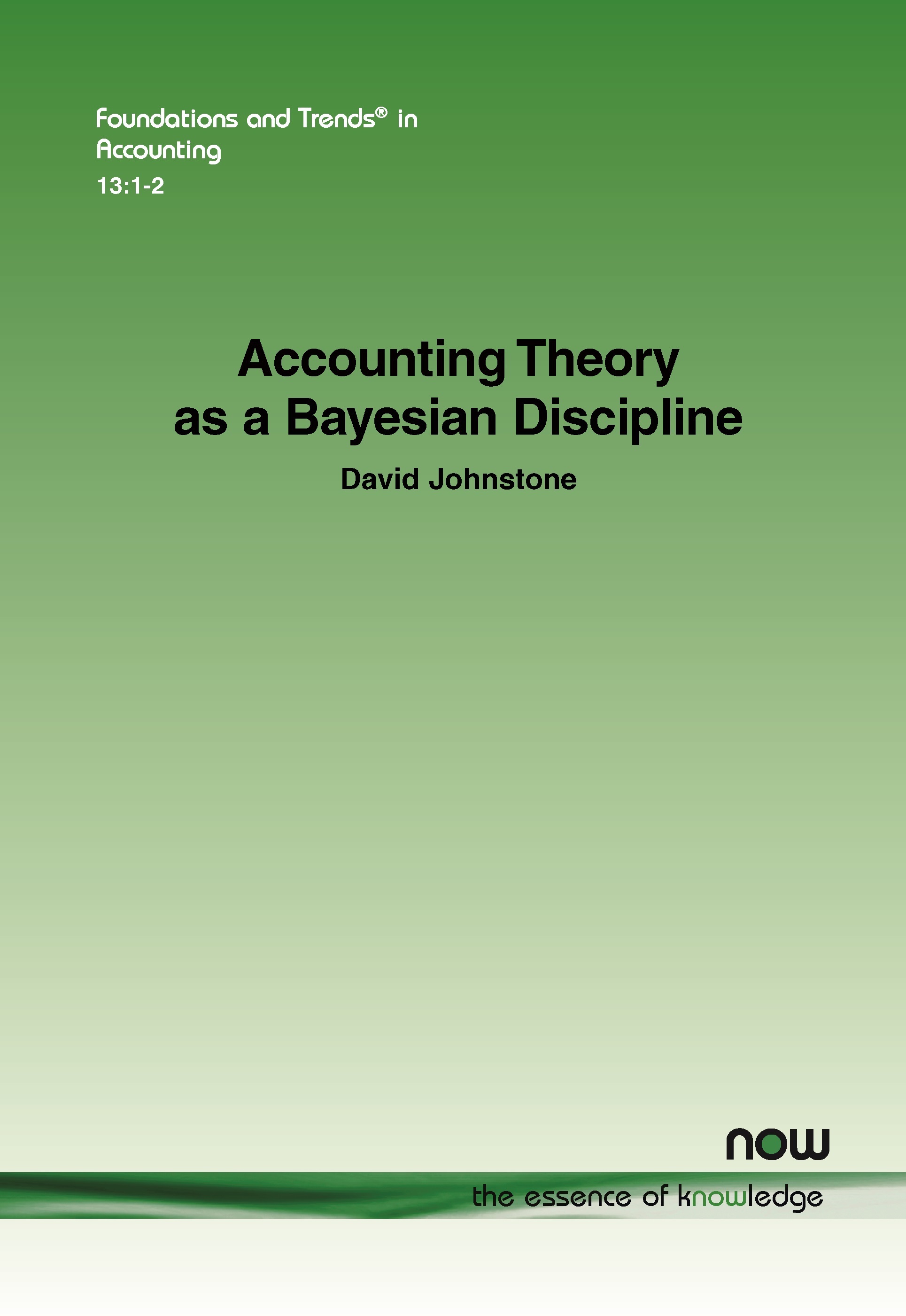Accounting Theory as a Bayesian Discipline
David Johnstone, University of Wollongong Honorary Professor of Finance, University of Sydney, Australia, djohnsto@uow.edu.auAbstract
The Bayesian logic of probability, evidence and decision is the presumed rule of reasoning in analytical models of accounting disclosure. Any rational explication of the decades-old accounting notions of "information content", "value relevance", "decision useful", and possibly conservatism, is inevitably Bayesian. By raising some of the probability principles, paradoxes and surprises in Bayesian theory, intuition in accounting theory about information, and its value, can be tested and enhanced. Of all the branches of the social sciences, accounting information theory begs Bayesian insights. This monograph lays out the main logical constructs and principles of Bayesianism, and relates them to important contributions in the theoretical accounting literature. The approach taken is essentially "old-fashioned" normative statistics, building on the expositions of Demski, Ijiri, Feltham and other early accounting theorists who brought Bayesian theory to accounting theory. Some history of this nexus, and the role of business schools in the development of Bayesian statistics in the 1950–1970s, is described. Later developments in accounting, especially noisy rational expectations models under which the information reported by firms is endogenous, rather than unaffected or "drawn from nature", make the task of Bayesian inference more difficult yet no different in principle. The information user must still revise beliefs based on what is reported. The extra complexity is that users must allow for the firm's perceived disclosure motives and other relevant background knowledge in their Bayesian models. A known strength of Bayesian modelling is that subjective considerations are admitted and formally incorporated. Allowances for perceived self-interest or biased reporting, along with any other apparent signal defects or "information uncertainty", are part and parcel of Bayesian information theory.
Accounting Theory as a Bayesian Discipline
Accounting Theory as a Bayesian Discipline introduces Bayesian theory and its role in statistical accounting information theory. The Bayesian statistical logic of probability, evidence and decision lies at the historical and modern center of accounting thought and research. It is not only the presumed rule of reasoning in analytical models of accounting disclosure, it is the default position for empiricists when hypothesizing about how the users of financial statements think. Bayesian logic comes to light throughout accounting research and is the soul of most strategic disclosure models. In addition, Bayesianism is similarly a large part of the stated and unstated motivation of empirical studies of how market prices and their implied costs of capital react to better financial disclosure.
The approach taken in this monograph is a Demski-like treatment of "accounting numbers" as "signals" rather than as "measurements". It should be of course that "good" measurements like "quality earnings" reports make generally better signals. However, to be useful for decision making under uncertainty, accounting measurements need to have more than established accounting measurement virtues. This monograph explains what those Bayesian information attributes are, where they come from in Bayesian theory, and how they apply in statistical accounting information theory.
